Saturday, October 10, 2020
Empty: Darkness, Darkness
Posted by KKafa at 10:54 AM View Comments Links to this post
Labels: Empty, Jesse Colin Young, Robert Plant, The Youngbloods
Thursday, October 8, 2020
EMPTY: GARBAGE
Empty/Strange Little Birds (2016)
I don't think we have ever had much Garbage on this site. That might seem a dangerous place to start, dismissing the usual advice to quit whilst you're ahead, but no, it's true, I can see little or no reference at all. To the band, that is. (What else could I, or even you, possibly mean?) I loved the band on their breakthrough, a fairly rapid state of affairs, if long in the genesis. At the time the brash and somewhat strident decisiveness of the sound seemed a refreshing adjunct to the murkier tones of the grunge movement that begat the band. And I loved the contrast between the "old" guys* and their "young" singer.
Let's retrace some steps. It is 1993. Butch Vig and Steve Marker, both experienced and successful record producers have their own studio. However they weary of their trademark sonic tone, the shockwaves of the Vig produced Nevermind meaning that everybody had and wanted to sound that way. Bringing in old buddy, Duke Erikson, who had been in a couple of bands with Vig, they become engrossed in the art of the remix, their ethos being primarily to alter the direction and focus of the instrumental dynamic, playing tricks with the bass and guitar lines. From there it seems logical to see if that could apply within a live setting, to:
"take that remix sensibility and somehow translate it into all of the possibilities of a band setup."
Initial false steps with Vig on vocals prove unsatisfactory, with a joint decision it is a female voice the catalyst missing, seeking a forceful character with a powerful voice without too much screech. Marker comes across the band, Angelfish, enjoying the cut of the jib of their striking front woman, and her characterful tones. This is Shirley Manson, and Angelfish are the new name for Goodbye Mr McKenzie, a Scottish group of a relentlessly indie oeuvre. Manson initially not even their lead vocalist, merely sharing that role until the record company get involved, contracts needing a change of name to keep her at the fore. Cue Marker, who draws her to the attention of his cronies. An unsuccessful audition takes place, Manson too much in awe of the reputation of, especially, Vig, and with her impenetrable Edinburgh accent proving indecipherable to the three americans. That seems the end of that. But luckily she seeks another chance, with the dissolution of Angelfish and Garbage are in the can.
Supervixen/Garbage (1995)
I loved those first two albums, Garbage and Version 2.0, 1995 and 98 respectively, the aggressively clean thrust of the songs a potent clarion, with short songs, garlanded both with hooks and the quirks of the three studio boffins, all exuberantly presented with the brash charisma of Manson, transformed from gauche starlet to banshee. With crossover appeal to assuage both the purists and the poppers, for a while they were unassailable.
I Think I'm Paranoid/Version 2.0 (1998)
The traditional difficult third album, Beautiful Garbage, proved as dictated, nearly sinking the band. Frictions were beginning to appear and it didn't fare so well in the charts. A fourth album, Bleed Like Me, only kept them together by performing above expectation, following which they gave themselves some needed time-off.
Bleed Like Me/Bleed Like Me (2005)
As is the way, 2007's greatest hits package, Absolute Garbage, required some new material, with four new tracks produced, a stimulus for again picking up the pieces and reconvening, recording and touring in and from 2010.
As is also the way, no band is ever now allowed to stop entirely, Garbage no different. A final "new" album, Strange Little Birds, appeared in 2016, and it is from this record that 'Empty' comes. Sadly this is not their high-water mark, much of the studio trickery that so lit up their earlier releases seemingly dissipated and, um, empty. But it is still a good enough songs by any other standard, the vocals a mix of Chrissie Hynde and Alanis Morrissette, with a sturdy backing redolent also of the Pretenders.
No Horses/single (2017)
Fast forward a year or three and the band are on tour, celebrating the twentieth anniversary of Version 2.0 with a tour, along with an extended re-release of the album. Part of this shebang included a new single, 2017's No Horses, which suggests a return to form, effecting a glorious trip-hop vibe. I caught the tail end of that tour, as it hit Birmingham, UK, and my thoughts of that night, my sole live exposure to the band are included here. I am uncertain whether that is it; prior to Covid they were said to be planning new material for a release this year and US dates are pencilled in for summer next year. So, indeed, whatever happened to Garbage?
*Erikson hits 70 in January.
Empty? Maybe, but maybe get this or this instead.
Posted by Seuras Og at 12:28 PM View Comments Links to this post
Labels: Angelfish, Empty, Garbage, Goodbye Mr McKenzie, Nirvana, The Cult
Wednesday, October 7, 2020
Empty: Van Halen, Dreams
Empty. It's a good word, and an interesting choice for a musical theme, for these strange times. I've often felt empty, bereft and without optimism or hope for the future these past months. I'm not alone in that feeling. Not unique in my suffering. There's no such thing as martyrs right now--we all suffer together, only the degree and the wellspring of it might change from person to person, given how 2020 has treated them. I would venture that there's not been a sustained period of despair, fear, and unknowing like this in at least a hundred years. Maybe that's not really true, I don't know: I've only read history. Until now, I don't feel that I've ever lived it.
But this, our strange days, is history, indeed. And the history we study, that we remember best, isn't usually the kind and gentle eras. I'm sure people around the world, at certain times and in certain circumstances--chosen or forced upon them--might feel like the world at this or that given moment has never been worse, and pray that it doesn't get worse from there on. This is a dark, scary and uncertain time we are living in. There is a dread that hangs over us, a dull unease that this might never end. I will. We have to believe that, and we have to remember, given the past atrocities that have been visited upon us, we can survive this. I live in relative peace, comfort and luxury--writing a music blog is evidence enough that my life, despite the recent upheaval, is pretty easy. But, we all suffer, as I said, despite the form it may take and the effect it has.
The cure might be different, too, and vary in method and curative properties. I drink--drank--a lot during those first few months of lock down. Something about the buoyancy of a whiskey buzz helped make fear a little more like flying than falling. Booze. And music. Music was a lifeline. Sweet, sweet music. While I didn't read nearly as much as I had planned during the strict lockdown days, I did listen to music. I don't know that I've ever had that much time, sustained and uninterrupted time, to listen to music. I made a long list of bands to explore or revisit, and started ticking them off once I'd made it through their full, respective discographies. Some were relistens, revisiting old favorites, whose studio efforts I hadn't made time for in years (Pearl Jam, Oasis). But, other discography projects were bands I'd never been able to dive all the way into, given whatever reason there always is for me to switch the dial, or pull out the next disc and dig on the new buzz. It was illuminating to go through full careers, highs and lows, without interruption, to track the kind of progress and development that only exists in a band. Especially when a band has been around for a sustained amount of time and weathered the extremes of tastes, trends and technology. The Kinks were a fun listen. The Rolling Stones were an education, a long one. The Beatles, a reiteration of what I already knew to be greatness. The Who had more low, wtf moments than I remembered, but they still exist at both ends of the spectrum, flying from great to blah. I listened to a lot more than the classics, catching up on modern bands I'd missed out on (LCD Soundsystem, Nada Surf, Soul Coughing), bands I’d never given enough time to (Fugazi, Teenage Fanclub, Blur, Brian Jonestown Massacre ) and bands I wished I hadn't listened to because the full discographies ruined the mystique of loving a few choice singles (Beck, Talking Heads) to bands that I'd been told I was missing out on (Superdrag, Supersuckers, Pavement,) and realized, I hadn't, not really. But, good or bad, confirming or disappointing, music--long sustained loud music--filled an emptiness in a way that little else could. There's a void that opens wide in our psyches during bad times, and closes, leaving a scar that is nonetheless easy to ignore when things get better. And even then, there are scars that don’t heal. Music is a way to scream into that void and fill it, overfill it, cover the scars and find light in the dark.
The news about Eddie Van Halen's passing was a fresh hurt, a mean pain that felt new and cruel and like a scab being pulled too soon. There’s been enough bad news and when your heroes die, it’s hard not to linger. But, I went back today to the eponymous 1978 debut, and listened all the way through the discography, fully to the present. It was a long day of listening, and I'm still going as I write this, but I felt I had to get this out, to listen and to write while I'm in the present of this awful news. And, somehow being awash in the phased out, squealing guitar of Eddie Van Halen helped. It felt good to go back, and there was a certainty that it wasn't ‘just awesome' because, I mean, he’s one of the greatest guitar players ever. Period. It was awesome to hear him again, my original guitar hero, the reason I picked up the guitar to begin with. This wasn't bandwagoning, or getting caught up in the nostalgia that plays out so well to make gods of our once mortal heros. Listening to that guitar, to that pounding, revved out engine and horse-powered screaming, out of this world sound, was a revelatory now as it was when I first heard Van Halen in all their dirty, blazing glory. There are definitely some better than others when it comes to their catalog. Yet, despite the changeovers in stylistics, line ups and interpersonal drama, Van Halen, the band and the man, remained an otherworldly force of great music. Eddie Van Halen's guitar was a signal from another world, and it caught me, transported me, to great places. That's what rock does: moves you, takes you places.
I'm feeling a little more empty than normal today knowing the EVH is gone. The world feels a little more real, a little less magical, knowing that he was really just one of us, sadly, fraily human, and that the transformative laser beam and lightning sorcery of his fret work is over. Don’t meet your heroes, they say, but that’s silly--most of us never will. But, watch your heroes die? That seems exceptionally cruel, especially now.
Like some many teenage boys, when I heard “Eruption”, I wanted to play like that, wicked fast fingers sliding over the frets with extraterrestrial finesse. Rock music is magic. EVH was powerful in a way that is incomparable to what almost anyone else did on the guitar. Songs like “Cathedral”, “Panama”, “Everybody Wants Some”--I could listen to that work over and over again and still feel like I was hearing something miraculous. It never felt like a repeat--hearing EVH shred was revelatory and it hit as hard the 1000th time as it did the first time you heard it. EVH made you feel powerful just by listening. You'd never be as good as he was, but listening to him shred, literally, the fabric that separates reality from fantasy, made you grateful to go along for the tripped out ride.
The world is emptier today than it was yesterday. My heroes are falling, fading and I find myself cursed with an old man's cynicism and certainty that music won't ever sound that way again. There will never be music like that again. Like who? Like any of it, any of those first albums I heard that seduced me and made me fall truly in love with rock and roll. As a sound, as a lifestyle, and way to make sense of a world I know, no matter how old I get, will never really make sense. A world that would be a lot emptier without the sound of these drums and these guitars.
It helped to sit with EVH's guitar today. His music was a signal from a different place. The spectrum echos, sadness seems to be on a repeating loop, and the world is a darker place lately than it's been in a long time. And, today, it's even worse. But, music abides. It lasts. It has to. Music sustains, both of its own power and in what it can do for the soul in need of something better than itself to carry it through these rough days.
I know this post is a stretch on our usual editorial principles here at SMM, but I woke up and felt empty. Going back all the way to that 1978 eruption of rock n roll madness helped fill the void. I stretched our theme to include the word "empty" from the lyrics to Van Halen's "Dreams", from 1986's 5150. It's still a controversial album, even today. It was their first outing post-David Lee Roth, and purists think nothing VH did after 1984 was worth listening to. Van Hagar ruined the band for a lot of fans. And “Dreams”, despite the stellar EVH soloing and the instrumentation, is a decidedly 80s power-pop ballad. But, for me, it fits in a great album. The album was my first foray into rock n roll, and appeared in my life right about the time that I was starting to discover what music meant to me. The tour for 5150 was the second show I ever saw, the summer right before I started high school, and I often wish I could go back to what that felt like, hearing that music for the very first time. It was a blissful time--not at all empty--full of possibility, of exuberance, of curiosity. I may have moved on from VH, but the bliss, pure joyous bliss, that music first created in me, the spark it set off, has never been far from my mind. And EVH played an outsized role in that earthquake-sized shift in me. In fact, I think I keep listening in hopes of getting back to that inception. Today took me back, even if it was painful. And to EVH, I say, thank you for what you, and your preternatural, singularly mystical guitar playing, sparked in me.
The house band in heaven is going electric tonight, and they're gonna play something like you've never heard before.
Posted by Andy La Raygun at 1:33 PM View Comments Links to this post
Labels: #eddievanhalen, #empty, #vanhalen #RIPeddieVanhalen. #EVH
Empty: The Void (Filler)
Titus Andronicus: The Void (Filler)
[purchase]
Titus Andronicus is a frustrating band. (Shakespeare’s Titus Andronicus, a play that I’ve never seen, is also supposed to be pretty frustrating, and for years was considered to be his worst play. But, as it always seems to happen, it appears that this appraisal has changed. End of gratuitous Shakespeare section). They’re frustrating because they have incredibly grand ambitions, but don’t always live up to them. Because some of their music is really great, and some of it is headscratching. Because the band’s leader, Patrick Stickles, can be incredibly open and interesting when interviewed, but sometimes comes off as difficult. Although he suffers from various mental health issues, which may explain some or all of this. And, by some reports, sometimes their live shows are great, and others stink.
And I need to admit that part of my frustration is that I recognize that Titus Andronicus is a band that requires the kind of attention that I haven’t really been able to focus on music since maybe college.
Back when I was in high school, it was not uncommon for bands to create “rock operas” or albums that had some sort of overarching narrative. Some of these were and are considered classics, and others were considered silly or pretentious or indecipherable. As punk music began to gain notice, one of the things that you heard regularly was that the simple, stripped down music was a reaction to the excesses of classic rock and prog, and all of the hifalutin’ pretense, particularly the rock opera and its ilk.
Eventually, though, punks succumbed to the artistic temptation of trying to create a song cycle with a narrative, and the stories that were told often rivaled the prog masters for incomprehensibility. Although the music was, generally, more concise.
It probably came as no surprise to fans of Titus Andronicus, though, a band that fused punk with large helpings of Springsteen-esqe rock, that Sickles would attempt his own rock opera. As a Civil War buff of sorts, I first became aware of the band in 2010 when they released The Monitor, which used themes from the Civil War to reflect Stickles’ emotional issues. And some of the music really was thrilling. Their next album, Local Business, was more straight-ahead rock, but for 2015’s The Most Lamentable Tragedy, Stickels created a rock opera lasting more than an hour and half, on the topics of mental health and neurodiversity. As Spin explained,
the rock opera’s plot is roughly as follows: A manic-depressive young man meets a lookalike who shows him, through pharmacology and/or religious awakening, a better way of life. He meets and falls for a girl, but has become drug-dependent and experiences a breakdown. He nearly ends it all, but learns at the last second that life is worth trudging through. It’s basically impossible to track the story just by listening — Stickles’ guttural spitting makes many tracks indecipherable — but Quadrophenia and American Idiot were hardly coherent original screenplays, either.
And have you ever read the liner notes to The Lamb Lies Down on Broadway?
The music is also diverse; while most of it skews punkward, there are also electronic/noise interludes, poppy songs, some clear Springsteen homages, fiddle-heavy Celtic rock, and a version of “Auld Lang Syne.” And it was reviewed in The New York Times.
Toward the end, is “Into the Void (Filler),” a hard rocker with more than a little bit of Bob Mould/Hüsker Dü influence. I’ve read the lyrics and I’m frankly not at all sure about what it means, but if it is part of a piece about mental illness, maybe it not a surprise that it is hard to decipher. I still don’t know, though, whether the “Filler” in the title refers to filling the titular void, or that the song is filler, but I don’t think so, because it's pretty good (although I've never seen it mentioned in any of the reviews I read in preparing this piece).
I saw Titus Andronicus in 2013 at Terminal 5 in New York with my son, where they were the second act on a bill with The Menzingers opening and Lucero closing. I was excited to see Lucero for the first time since 2006 and to hear Titus Andronicus, but had never heard of The Menzingers. I think that Terminal 5 had really crappy sound, so the loud fast dense sound of Titus Andronicus was hard to listen to or understand (and looking at the setlist now, it appears they played a few songs from the not yet released The Most Lamentable Tragedy). Lucero was fine, although not as good as the first time, although it was maybe because of the bad sound. The Menzingers, though, made a good impression.
Posted by J. David at 8:30 AM 0 comments Links to this post
Labels: Bob Mould, Bruce Springsteen, Empty, Genesis, Husker Du, lucero, The Menzingers, Titus Andronicus, William Shakespeare
Friday, October 2, 2020
EMPTY: ROOMS/GAY & TERRY WOODS
Writing this on a windy, wet and bleak day in Shropshire, exhausted from a ramble around the Wrekin. Exactly the mood to bring on an attack of the folk-rock itch, todays scratch coming from the exquisite store cupboard of Gay and Terry Woods. And it set me a'thinking, not least of the back of the rereleased Richard and Linda Thompson catalogue, what if? OK, don't mistake me, I love RT and all of his oeuvre, but, coming out at much the same time and on the same record label, to say nothing of, broadly, the same musicians, how are we now not celebrating this other couple also? After all, what did they have in common? Talented instrumentalist and songwriter? Yup. Consummate singer of said songs? Yup. A sense of overarching melancholy? Yup, yup, yup. (To be fair, like the Thompsons, both could sing, if Terry, like Richard, was a more acquired taste. Plus their material was decidedly co-written between them.)
Empty Rooms is a classic of the early to mid seventies folk rock style. One of the finest tracks on their second album in their joint name, The Time Is Right, from 1976, I surprised to see it actually came out on the Polydor label and was not produced by John Wood, so indelibly is it stamped with the aura and ambience of the pink Island label. The slow build, the soaring vocals, initially Gay alone, autoharp and harmonium providing a desolate backing over picked guitar. Gay then harmonises with herself, with distinct echoes of, yes, Linda Thompson, but also of the lodestone of this genre, Sandy Denny. Indeed, the melody and mood is very redolent of Denny's own solo work. Finally a coda kicks in, with the Fairport rhythm section, Island records own house band for everyone at that time, the Dave's Pegg and Mattacks, accompanying Terry Wood's guitar, adding plangent chords as it fades to the end. Exquisite. As is the song below, Back to You.
But the time, sadly, wasn't right, they failing to make any great breakthrough, breaking up both as an act and a partnership after a third album. But that wasn't the end of either of them. Mind you, they had paid their dues, neither here today and gone tomorrow flitterbegibbets. Teenage sweethearts, they had grown up, in Dublin, as near neighbours, both drawn by their mutual love of music, performing together as early as 1963, mainly a mix of country, blues and a little Irish. It is hard to believe how unpopular the traditional Irish tradition was at that time. Perhaps the first group to give that tradition a good kicking was Sweeney's Men, as Johnny Moynihan, Andy Irvine and, initially, Joe Dolan transplanted Irish idioms onto a transatlantic hillbilly base. When Dolan left, Terry Woods interrupted the initial iteration of the Woods band, he and Gay, to become an integral part of the line-up.
Meanwhile, over in England, a certain Ashley Hutchings was tinkering with the formation of a group to take the folkier leanings of his then band, Fairport Convention, further and deeper into that tradition. So having invented folk-rock with Liege and Lief, he left, an original plan being that he and Sweeney's Men would combine, bringing in Gay Woods as a female voice. Neither Irvine nor Moynihan were up for it, so Hutchings pitched the idea to some others in the same field. So, Hutchings and the Woods, in 1970, combined with the duo of Tim Hart and Maddy Pryor, to form Steeleye Span, this grouping responsible for the first record by this band, Hark the Village Wait. Less austere than later line ups, this is almost a transition, bridging the styles of Fairport and the Woods, retaining drums as an integral part of the sound if not officially of the band. But Terry Woods and Tim Hart had distinctly different opinions as to, well, just about everything, and, for the good of the band, Hutchings enlisted Martin Carthy and dumped the Woods.
There then came a brief joint membership with Ireland's answer to the Incredible String Band, Dr Strangely Strange, who were, perhaps unsurprisingly, much as the name might suggest. Even when featuring a young Gary Moore on electric guitar, they couldn't quite ever work out quite who their audience should be, and they ground to a halt, that accelerated by the Woods reviving their duo. Which is where we came in.
On the dissolution of the duo and their marriage, Gay Woods, somewhat surprisingly and counter-intuitively, became, for a while, the brighter flame, as she applied a more modern varnish to songwriting. For a while the keyboard and synth heavy Auto da Fe were seen as Ireland's next big thing, the presence of Phil Lynott as producer and on bass helping no little. It couldn't last, however, and 1994 had her rejoining Steeleye Span, now a completely different band, with only Maddy Pryor remaining from that first line-up. For a while they were joint front women, with Woods taking over entirely for a while, as Pryor took a sabbatical. Woods left again shortly after, but not before providing the stand out track for 2000's Bedlam Born.
Terry has had a more varied career, dipping in and out of various groupings with artists as varied as (again) Phil Lynott and Ron Kavana. But his moment in the sun came a little later, when folk-punk mavericks the Pogues needed a little more gravitas to ground their unwieldy, if effective, amalgam of the musicianship of the Dubliners with the attitudes of punk rock. Woods was the perfect bridge between the two opposing styles, his membership giving a boost of credibility to those who couldn't see past the image, and thus failed to see the astonishing songwriting of Shane MacGowan. And, as MacGowan slipped into a drunken self-parody, it was Woods who could provide the glue and keep the band together. Whilst he left in 1993, he became again present in band reunions from a decade later until final performances in 2014, spending the interim and since back with old buddies from his long and varied past. A final iteration of the Woods band, the name revived even if he the only Wood present, provide an apt reminder of his position as a weaver of styles and traditions.
Fill your rooms with this!
Posted by Seuras Og at 6:41 AM View Comments Links to this post
Labels: Auto da Fe, Empty, Fairport Convention, Gay & Terry Woods, Phil Lynott, Richard & linda Thompson, Ron Kavana, steeleye span, Sweeney's Men, The Woods Band
Monday, September 28, 2020
Empty: Empty Baseball Park
Whiskeytown: Empty Baseball Park
[purchase]
When I suggested the Empty theme, it was prompted by watching sports in empty stadiums, and honestly, I had forgotten about this song. If you have read my posts here and elsewhere, you know that I’m a sports fan, mostly New York teams (Mets, who I have written about often, Giants, Knicks, Red Bulls, Sky Blue), plus Arsenal and Princeton sports, the US Women’s and Men’s National Soccer Team, and the Olympics, World Cup, etc.
As the pandemic closed things down, sports were an early casualty, so that being stuck at home wasn’t tempered by the chance to watch games on TV. Slowly, though, games started to return, beginning with the German Bundesliga, then other European soccer leagues, all of which were played in empty stadiums. In the USA, because our response to the coronavirus was incompetently handled by our incompetent president, the first games that started were played in “bubbles,” where the players and staff were isolated from society to prevent infection. So, both the NWSL and MLS played, as did the NBA and NHL, at various central locations, with reasonable success.
But summer means baseball, and for me, I love watching Mets games, even when the team is, as usual, not good, in part because it is a long standing tradition, but also because the Mets announcers, Gary Cohen, Keith Hernandez and Ron Darling are the best. (And if you don’t believe me, read this, subscription to The Athletic required, and well worth it.) Baseball ultimately decided to have a truncated season, with some new on and off-field rules, with the games played in the teams’ parks, not a bubble (although they are moving to a bubble for the playoffs). But again, there were no fans allowed, although some teams allowed fans to buy plastic cutouts of themselves, their families, random other people, and even pets, to make it look like people were in the stands. And like most of the other empty stadium sports, fake crowd sounds were pumped into the stadium and/or played on the broadcasts to lend some degree of normality.
I watched a good part of the Mets’ season, in the empty baseball parks, and despite the talent on the team, and the fact that the number of teams qualifying for the playoffs was increased, the team fell short—which was a disappointment, because most prognosticators had the team at least making the playoffs. But as the cliché goes, that’s why you play the games.
So, when I started looking for songs for this theme, “Empty Baseball Park” jumped out at me. Whiskeytown was a band founded by Ryan Adams, and was known for excellent songwriting, inconsistent performances and internal turmoil. The band cycled through members, with only Adams and Caitlin Cary as consistent participants. The band released only three full albums, but their influence can be seen by the fact that there are at least two books about the band.
Adams is one of those scarily talented songwriters and performers who has probably thrown away more great songs than most people write. He’s also known for being personally difficult, having issues with drugs and alcohol, and, most recently, being accused of sexual harassment. I’ve long appreciated Adams’ talent, and appreciated his part in helping Jason Isbell get sober and supporting his career, but it is hard to ignore the harassment issues, which he has denied, but which appear to have derailed his career, at least for now. And Isbell has distanced himself from his former friend.
But, back to the song. “Empty Baseball Park” was originally recorded as a demo, along with other songs, called the “Baseball Park Sessions.” Many of the demos later appeared on Whiskeytown’s 1997 Strangers’ Almanac album, but not this one. In 1998, the band reissued its debut album, Faithless Street, and included a slew of bonus tracks, including “Empty Baseball Park.” Now, despite my long discussion of playing sports in front of empty seats, that’s not what the song is about. Rather, it is a reminiscence by Adams of growing up in Raleigh, North Carolina, and his aimless activities, including hanging out in an empty baseball park after the bars closed, with, reportedly, a young woman, and pretending that a game was going on.
It’s not the best Whiskeytown song, but I’m glad that this theme reintroduced me to it.
Posted by J. David at 8:30 AM View Comments Links to this post
Labels: Caitlin Cary, Empty, Jason Isbell, Ryan Adams, Whiskeytown
Saturday, September 26, 2020
Lessons: musings of a teacher
purchase some Steve Martin [ The Crow ]
purchase some Tommy Emmanuel[ Guitar Mastery of ~ ]
Like at least one other of my associates here at SMM, lessons is what I do. Day in, day out for forty-two years now. But for some reason, this has meant that I have struggled to come up with something to share on this page at this time.
Like most school folk, as trite as it may seem, I am committed to life-long learning. I take this for granted. Until, that is, I run across research that shows that one in four Americans didn't read a single book last year. The good news is that apparently there has been a slight uptick with the arrival of audiobooks.
The tradition location for a lesson - the classroom - has become a memory. I've been teaching out of a closet at home since March and it continues this fall. As a teacher, it cuts both ways: I've gone a month into the new year without having once met my students IRL. Tough to really know who's learning the lesssons. On the other hand, my double computer Zoom setup and the handy French press offer some mitigation. I record each class and post the video along with a copy of the presentation materials.
The first lesson of the day starts at 7:50. I suppose I could just about roll out of bed 5 feet away and power up the Zoom meeting in 5 minutes. But I need a bit more and figure the kids do, too. So ... this year, I've taken to starting the Zoom 5 minutes before "the bell" and cranking out some music as we wait for all 20 to arrive and pass through the waiting room door.
My selection of music for this use has multiple purposes: learn the kids something they might not have been exposed to in their home culture (we're not in America), as well as set some kind of a tone. At 7:50AM, that's likely to be something to help them get awake, like this:
At 2:20PM. when the students have been through 2 80-minute lessons followed by 3 40-minute lessons and are headed for one last 80 minute session until 3:40, my choice could be another bluegrass bounce, or it could be something along these lines:
Video doesn't stream particularly well through Zoom, so I've been converting YouTubes to mp3s and pumping those out. I've noticed that it is taking considerably more time to manage lessons in the zoom world both in preparations before and in follow up after. The time for downloading, converting and cueing the song seems to be worth it since feedback from my audience has been positive and has led to learning and discussion beyond the course content: a well-rounded lesson for all, myself included.
Posted by KKafa at 4:48 AM View Comments Links to this post
Labels: Earl Scruggs, Kermit the Frog, Steve Martin, Tommy Emmanuel
Friday, September 25, 2020
LESSONS: FALLING IN LOVE WITH MY TEACHER/DANNY ADLER
Sting was famously a teacher, something the lyrics, and video, of the Police hit Don't Stand So Close make no small reference to, although surely in fantasy, it seeming hard to imagine any teenage girl being enraptured by the gormless looking Gordon. But this is not about him, this is the other side of the coin. This song is the world of crushes and besottedness, and relates more to the phenomenon of the spotty teenage oik, gazing in slack-jawed awe at the woman of his dreams. Add in the scenario of an all boy school, maybe a boarding school, and you can see how it happens, that teach being, perhaps alongside Matron, the only female form for mile, age and comeliness no hurdle for the bubbling surges of testosterone. And it's actually quite a bit creepier than Sting and co.
At least Danny Adler, onetime guitar jockey for pub-rock stalwarts Roogalator, made no bones about it. An unheralded talent who went largely unlauded then or later, he started off a guitar for hire in Cincinnati, getting gigs with some of the local blues scene talent, folk like Bootsy Collins and Slim Harpo. He later moved to San Francisco, hooking up with further bigger blues names, such as John Lee Hooker and T-Bone Walker. Another packed suitcase had him later being part of Frank Zappa and (later) John Lennon acolytes, Elephant's Memory, in New York. So quite how he came to be in London come 1971 is anyone's guess, other than the wanderlust that had led him to study jazz guitar in Paris.
Roogalator were a classic right band in the wrong time, and they shoulda and coulda, were it not for that timing. Part of the fizzing pub rock scene, where any style of music, whether derived from blues, from country, or from soul could make a name and a living of sorts, provided the sounds were held in sway by a tight rhythm section and the songs were short(ish) and catchy. The stirrings of an antidote to prog, more accomplished and more innovative than the later dawn of punk which, in turn, kicked pub rock off the stage and into the footnotes. And, yes, it's true, many of the denizens of that early 70s movement revived and reinvented themselves as new wave dawned, becoming elder statesmen feted to this day, your Nick Lowes, your Elvis Costellos, Graham Parker even. Not quite so was the lot of Adler, although he was, for a time, part of the studio band set up by Dave Edmunds and Nick Lowe, under the names, variously, of the Disco Brothers and the Tartan Horde. Nothing of any great repute came therefrom, but it is interesting to consider what if made the the cut for the band Rockpile, instead than Billy Bremner.
After the demise of that project, itself probably accelerated by Stewart's death, Adler became an integral part of another collection of UK jazz and blues veterans, the De Luxe Blues Band, many of whom were seasoned session men from the 60s british blues boom, as indeed was Dick Heckstall-Smith, the ex-Colosseum reedsman, who later joined. Eventually his itchy feet again caught up with him and he returned to the USA. Since that time, the early 1990s, he has been continuing to plough his own idiosyncratic furrow, as well as buffing up his Roogalator and other back catalogues. The featured song for this piece comes from a collection, Hub-cap Heaven, about which I can find little, other than the purchase link below. The song is from 1986, seemingly the album part of a trilogy about early postwar England and America. Maybe. His personal website is intriguingly incomplete, his material, new and archive, seemingly best sourced through Bandcamp, with information via Facebook, as well as sporadic new offerings. Any guess as to whether or how this supplies a living is open to conjecture, but, if it works for him, all power to that.
Posted by Seuras Og at 10:43 AM View Comments Links to this post
Labels: Chilli Willi & the Red Hot Peppers, Danny Adler, Deluxe Blues Band, Disco Brothers, Dr Feelgood, Elephant's Memory, Kokmo, Larry Adler, Lessons, Rocket 88, Roogalator, Tartan Horde, the police




















































































































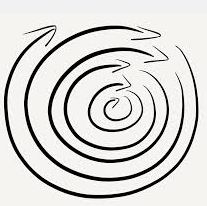


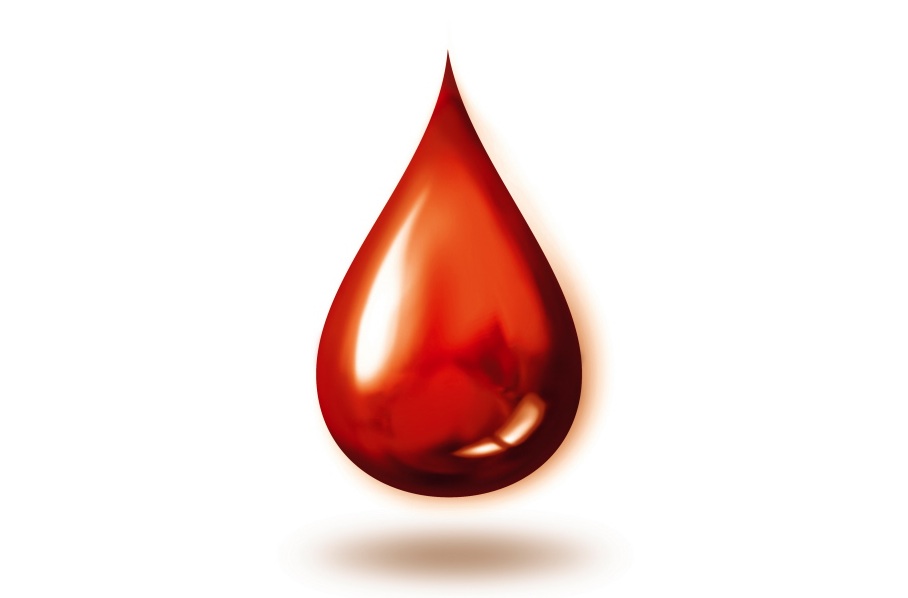
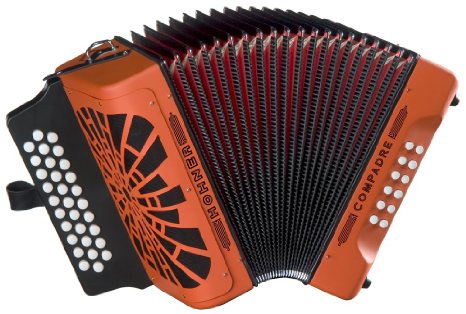
















































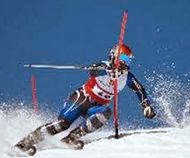


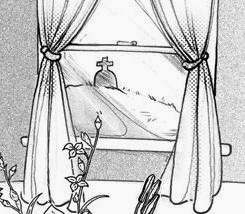







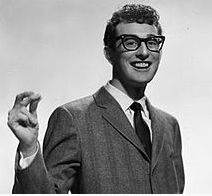



















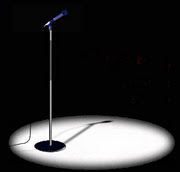


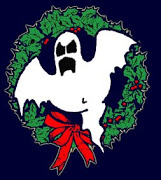











































































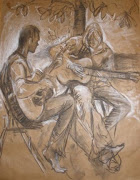





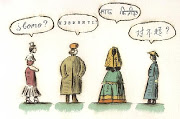












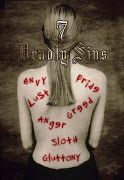

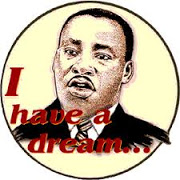



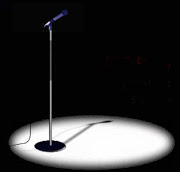



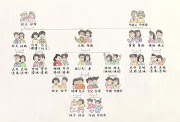



















:format(jpeg):mode_rgb():quality(90)/discogs-images/R-2636421-1296411581.jpeg.jpg)